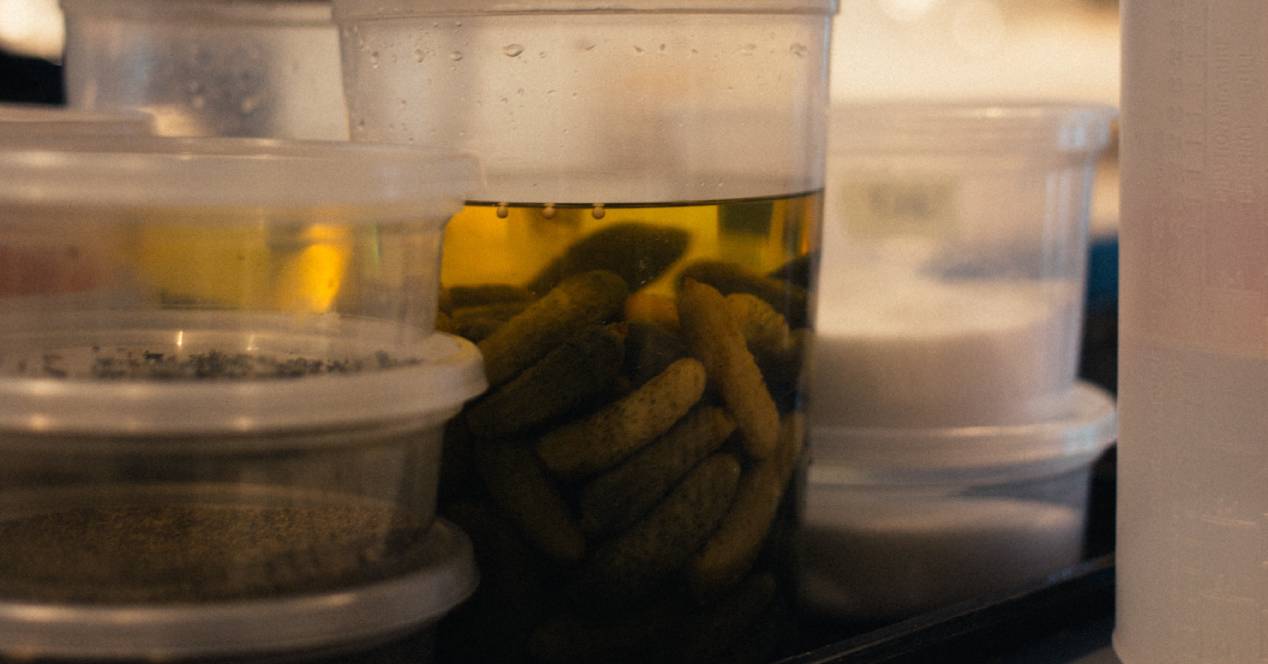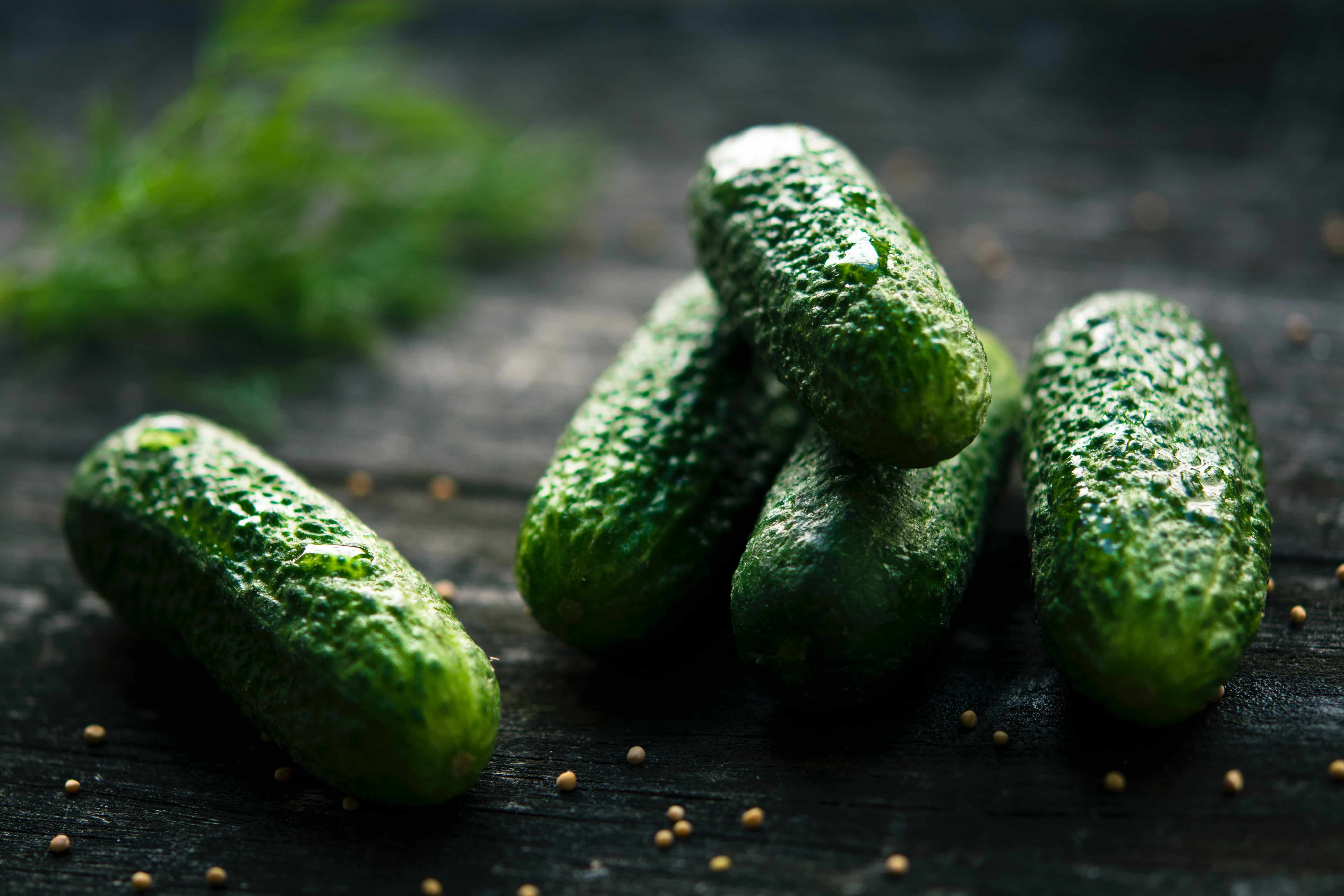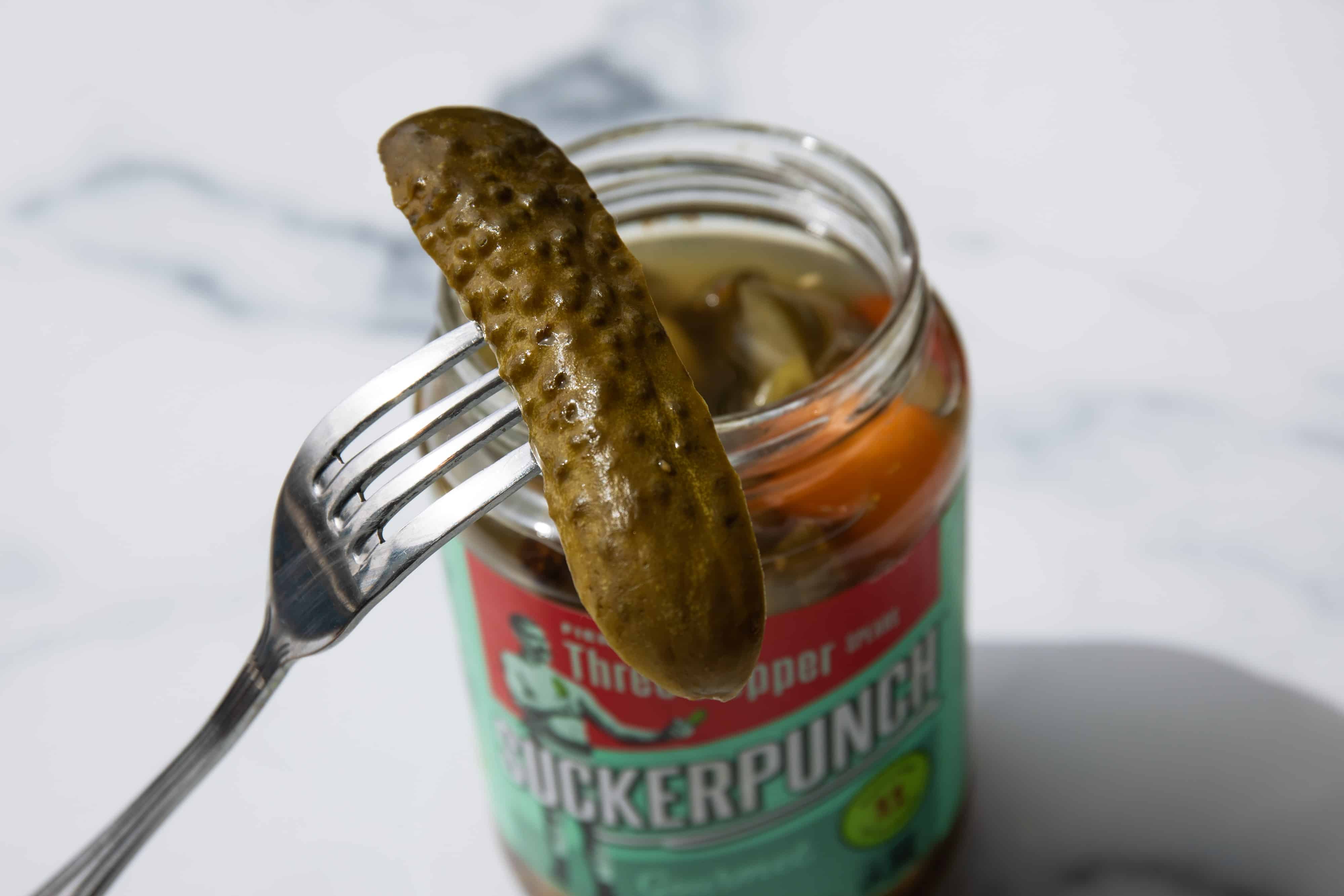
In all your years of sports, you've probably heard of thousands of remedies for muscle cramps; like eating bananas or stretching. But do you want one more? Drink the juice of the gherkins. There are not a few athletes who defend that drinking this juice can help relieve painful cramps and even prevent them.
Pickle juice has become a popular leg cramp remedy over the years, specifically for post-workout cramps experienced by runners and athletes. Some athletes trust it and attest that it really works. Still, the science behind it isn't quite clear.
For one, skeptics have doubted that pickle juice works for leg cramps. There is still no solid scientific reason to show how it works, so some dismiss it as a placebo effect. On the other hand, some research suggests that it is much more effective than a placebo.
One theory as to how pickle juice works is because of its sodium content. The juice contains salt and vinegar, which can help replenish electrolytes. But is this really true?

Does it really work?
Let's stop and think: the juice from pickles is technically brine, so it is salt water. Many people think that the benefits come from the sodium in the salt; as when we become dehydrated (such as after a hard workout), the body's electrolytes (including sodium and potassium) are flushed out. That is why involuntary muscle cramps can be caused.
According to an investigation, pickle juice can help positively. In that small study, some men with cramps were given pickle juice, while others were given water. The researchers found that the men who drank the juice had cramps that lasted about 49 seconds less than those who drank the water.
Although not yet proven, researchers believe that pickle juice may help relieve cramps by trigger muscle reflexes when the liquid comes in contact with the back of the throat. This reflex turns off failing neurons in muscles throughout the body and "turns off" the cramping sensation. It is believed that it is specifically the vinegar content in the pickle juice that does this. Still, more research is needed to show if this is exactly how pickle juice works to prevent cramps.
Logically, this remedy has advantages in extreme athletes or who carry out very intense training. If that's you, you can try having a quart of pickle juice after you work out. Mix it with water to make sure you stay well hydrated.
Could it be another type of juice?
Over time, pickle juice has been unique and popular in the way it helps with muscle cramps. Until now, there haven't been many other foods or natural remedies that can put it in the shade. Foods with a similar juice have not been studied as much as gherkin for cramps. But they could be just as good.
Could you eat a pickle and have the same effect? Scientifically speaking, it may be. Some researchers comment that the relief of cramps may have more to do with the vinegar content. If we eat a pickle in a brine with vinegar, it could also work. However, eating a pickle is not as well studied as the juice from it.
What about other similar fermented products? Liquids like juice sauerkraut, kimchi, el apple cider vinegar and even the Kombucha they are similar to pickle juice. Some have both vinegar and salt content, while others only have vinegar content. Following the vinegar theory, these can also work. The only thing is, they have not been scientifically studied and tested like pickle juice.
How to use pickle juice for cramps
In studies in which pickle juice is effective for muscle cramps, researchers used approximately 1 milliliter per kilogram of body weight. This usually results in between 500 and 800 cl.
To use pickle juice for muscle cramps, measure the juice and drink it quickly. It is also acceptable to make a sharp "shot". Pickle juice can be used pickles cucumbers bought at any store or homemade pickles fermented safely, if we prefer. We just have to make sure that the acids and natural salts of the vinegar are present. It also doesn't matter if the juice was pasteurized or not.
As cramp relief is believed to come specifically from vinegar, it is recommended to avoid diluting the juice. It is better to drink it raw and experience the taste. However, this can be difficult for some people who don't enjoy the taste as much.

Is there any downside to drinking it?
It tienes hypertension Yes, the increase in salt in your diet could be a problem. First of all, check with your doctor. Also, pickle juice can be dehydrating if it's the only thing you drink after training. So make sure you drink in moderation and increase your water intake.
Some doctors and health professionals warn that pickle juice might worsen dehydration. They say it reduces thirst when we drink it, but it doesn't rehydrate like water. However, there are studies that say the opposite, and bet that it will not dehydrate us and will not control thirst. It will also rehydrate just as much as water.
If small amounts are taken, such as 500 to 700 cl once in a while, there should be little or no health problems or dehydration. Pickle juice tends to be very salty and therefore high in sodium. Pickles, especially homemade ones, have high levels of probiotics for gut health and immune system function. We must be careful when taking it if we suffer from ailments or digestive disorders. Some pickle juices are high in acetic acid, which can make certain symptoms worse.
In case that you can't drink the juiceThere are sports drinks like Gatorade and Powerade that help replace the loss of sodium and electrolytes in your body. Shame is, they don't pack as much punch as super salty brine juice, but they can help.
Even if you hate pickles, try drinking a sports drink before, during, and after a hard workout. For example, you can add a teaspoon of salt to a pint of water, as well as add citrus juice for flavor.
Of course, if you are not training very hard and for a long time in elevated temperatures, you really do not need to drink this drink to help you improve muscle cramps.